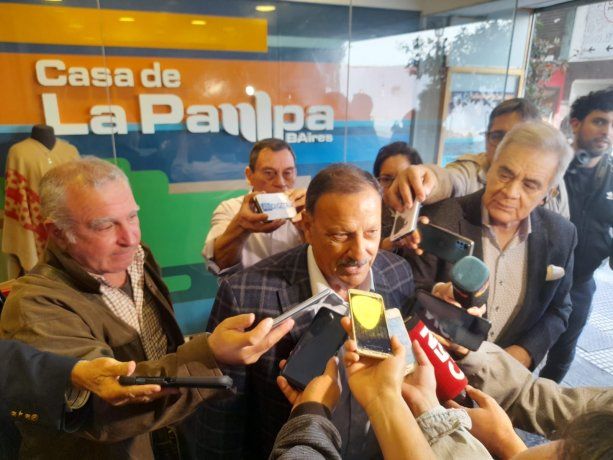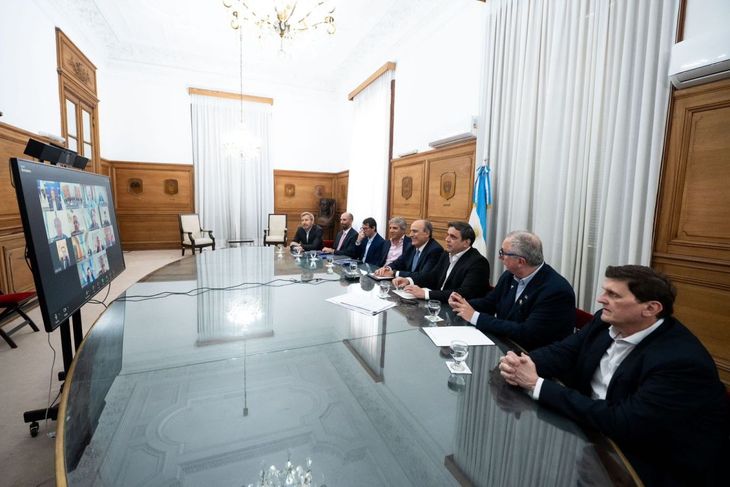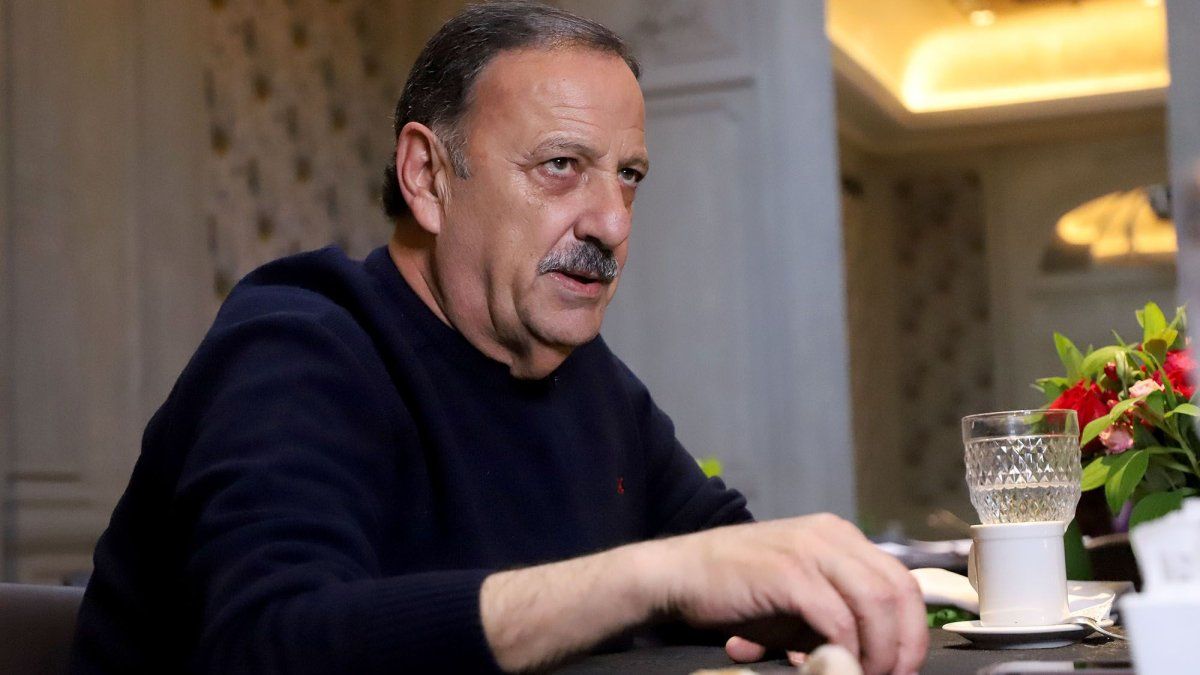Since the Peronist administration Ricardo Quintela confirmed to Scope who are exploring moving forward through the judicial process, as they did at the beginning of 2024. “There will certainly be new presentations. There is no definition yet, but it is a possibility,” They commented from the northern jurisdiction in response to a query from this media outlet.
La Rioja – Nation: a long-standing dispute
To understand the tug of war between Rioja and Nation For the funds we must go back to the very genesis of the current system of Federal Co-participationwhich emerged in 1987 and was approved in 1988, during the presidency of Raul Alfonsin. When the methodology was developed, The province was harmed by an asymmetry with political overtones.
As compensation, each year they negotiated with the Government in power the allocation of an extra amount equivalent to what they estimate will be 1% of the Co-participation, adjusted for inflation.
That plus was contemplated within the Budget 2023approved in 2022 and extended upon the arrival of Javier Milei a Balcarce 50. This year, however, the Riojan administration did not receive the defined amount, so it has already taken the dispute with the Casa Rosada to court: In early February, Quintela’s administration sued the State before the Supreme Court for more than $50 billion.
In the presentation made before the highest court, the provincial administration claimed that the National State-Chief of Ministers “transfer the sum of $9,300,000,000 duly updated by the Consumer Price Index (CPI) of the National Institute of Statistics and Census (INDEC) provided for by Article 83 of Law 27,701 corresponding to the budget for Fiscal Year 2023.”
Likewise, it demanded $47,000,000,000 duly updated by the Consumer Price Index (CPI) of the National Institute of Statistics and Census (INDEC) through the system of “daily drip of shared funds” or alternatively, in twelve (12) monthly and equivalent installments corresponding to the budget for Fiscal Year 2024.
Courts Supreme Court of Justice.jpg
La Rioja already went to the Supreme Court of Justice last February.
Ignacio Petunchi
“In order to fully exercise their autonomy, provinces need to have resources. There is no political autonomy without resources to support it.” The demand also stated that “it is not possible to develop inclusive public policies without the corresponding resources.”
A similar scenario could be set up now, in the heat of the 2025 Budget, which does not contemplate the extra amount of Federal Co-participation destined for the district and which is added to the chainsaw plan that the libertarian administration is carrying out on the provincial coffers. In fact, in the presentation of the project, President Milei demanded an adjustment of US$60 billion from the governors, a figure that was later relativized by the Minister of Economy, Luis Caputo, in the heat of the complaints that came from all over the country.
Although the judicial route is one of the possibilities, the truth is that it has more to do with causing a stir than with concrete results. In the ranks of Unión por la Patria (UP) there is not much optimism about the action of the courts in their demands. “The issue was already brought to court this year and we did not get a response,” protested a legislator from La Rioja contacted by this medium.
In this regard, the national deputy for La Rioja Ricardo Herrera He admitted to being “quite skeptical.” “I don’t see any light at the end of the tunnel unless a meaningful bilateral negotiation is achieved,” commented the UP leader, while denouncing that “The President decided to harm the 450,000 or 460,000 inhabitants of La Rioja by not recognizing the point of co-participation in the budget.”
Ricardo Quintela.jpeg

Riojan Ricardo Quintela, during a summit of governors of Union for the Homeland at the Casa de La Pampa.
“This is not just a political issue, but a direct impact on resources that are vital to our province,” Herrera said in conversation with La Red.
In this regard, the Peronist legislator pointed out that 90% of the resources received by the province are used for the payment of salaries and other current obligations: “Since 1987, when a percentage point of revenue sharing was taken away from the province, all legislators have agreed on the need to restore it. This is not a new claim; it is a historical clamor that unites legislators from different political parties.”
Coincidentally, a year ago, on September 17, 2023, the then Minister of Economy and presidential candidate, Sergio Massaannounced during a visit to La Rioja that he would double the amount of the extra shareable amount for the province with a view to 2024. The Tigrense initiative was finally truncated as a result of Javier Milei’s victory in the runoff.
Summit to contain the provinces
This Monday, just one day after the presentation of the 2025 Budget, the Chief of Staff, Guillermo Francosand Minister “Toto” Caputo led a meeting with governors seeking to contain the complaints that came from numerous provinces in response to Milei’s request for greater adjustment for next year.
At the conclave, The head of the Treasury Department downplayed the President’s remarks and said they were “figuratively” meant to imply that the cuts should be large.
Francos governors Zoom.jpg

Guillermo Francos and Luis Caputo tried to calm down the complaints of governors from all over the country.
The provincial leaders participated in the meeting in person Rogelio Frigerio (Entre Rios) and Hugo Passalacqua (Misiones), who attended the Casa Rosada with his Minister of Economy, Adolfo Safran.
For their part, the following were present via Zoom: Raul Jalil (Catamarca), Leandro Zdero (Chaco), Ignacio Torres (Chubut), Carlos Sadir (Jujuy), Alfredo Cornejo (Mendoza), Alberto Weretilneck (Black River), Gustavo Saenz (Jump), Marcelo Orrego (Saint John), Claudio Poggi (Saint Louis), Claudio Vidal (Santa Cruz), Maximilian Pullaro (Santa Fe), Gerardo Zamora (Santiago del Estero), Osvaldo Jaldo (Tucuman) and Sergio Ziliotto (The Pampas).
Source: Ambito




